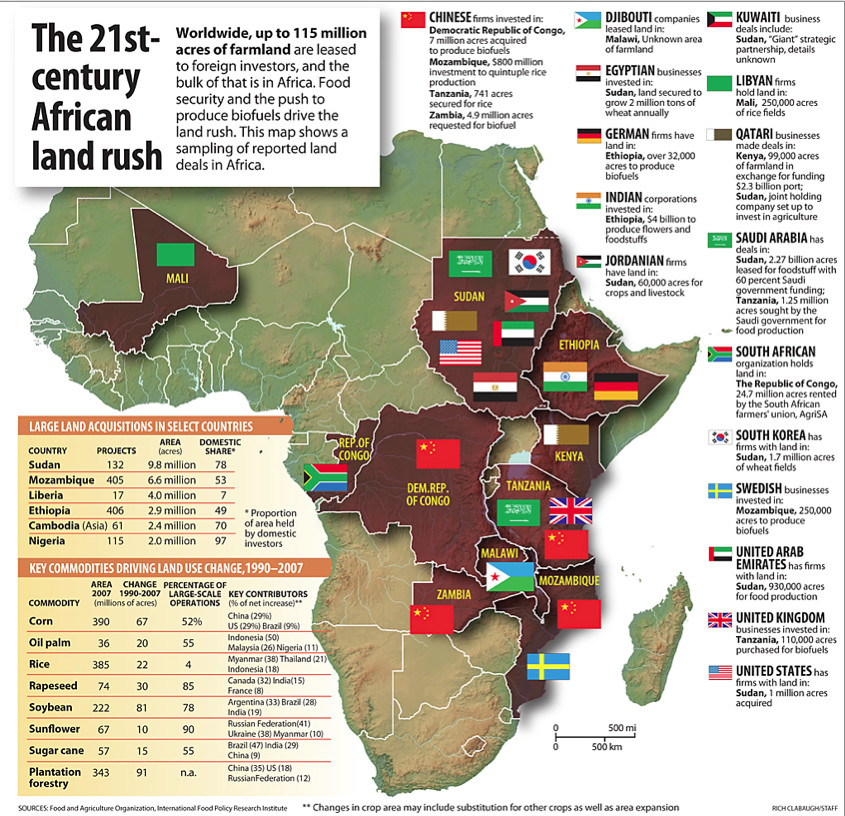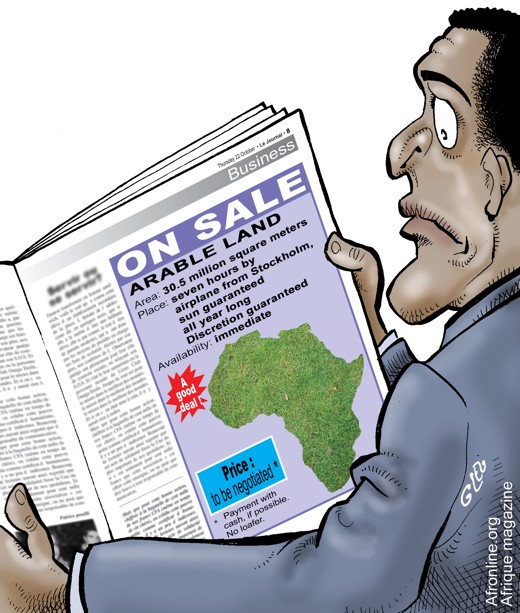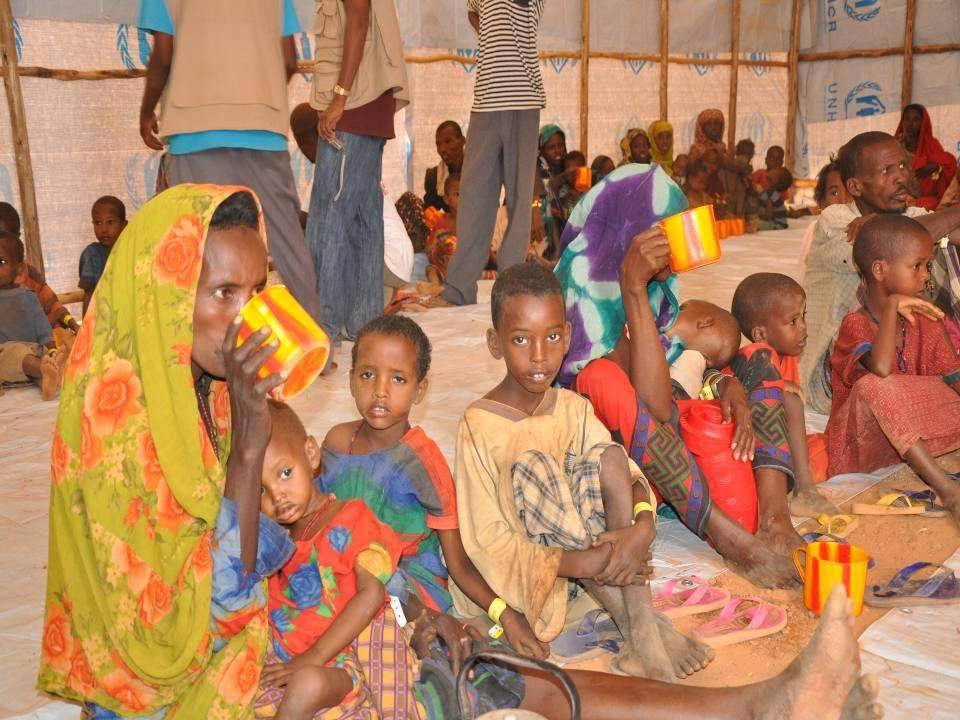Courtesy Of "Al-Jazeera"
The Stream speaks with Indian author Anand Giridharadas, Anuradha Mittal, Executive Director of The Oakland Institute, and Christine L. Adamow, Managing Director of Africa BioFuel, a U.S. company invested in farmland in Kenya and Tanzania.
Indian, Chinese and U.S. companies are among many inking land-investment deals in Africa, including Ethiopia, Tanzania, South Sudan, Mali, and Mozambique. According to a study by the U.S.- based Oakland Institute, foreign investors bought or leased a land area in sub-Saharan Africa about the size of France in 2009 alone.
American universities’ trusts (including Harvard’s) are also buying up land, reportedly displacing millions of farmers in the process.
Advocates say the land is being taken from indigenous communities by often violent means, and that land rights are handed over without proper contracts after closed-door deals. A lack of regulations in these countries allows foreign firms to purchase or lease large tracts of arable land, leaving little recourse for displaced residents.
Investors claim to be growing food for the global market that will indirectly alleviate food shortages in Africa, but land is very often used to grow non-edible export commodities such as flowers and biofuels.
Defendants of the deals say local farmers who are employed by foreign firms earn more working the land than they otherwise could, and that infrastructure developments (like clean water facilities or improved irrigation systems) are there to help them.
But many of the long-term social and environmental costs are more hard to predict, and critics say the “land grabs” are already causing “deprivation and destitution” for locals.
Indian author and media commentator Anand Giridharadas will the joining the programme. The Oakland Institute’s Executive Director, Anuradha Mittal, will be on the show via Skype along with Christine L. Adamow, Managing Director of Africa BioFuel, a U.S. company invested in farmland in Kenya and Tanzania.
What do you think? Is Africa being colonised again? Send us your thoughts and comments on Facebook or Twitter using hashtag #AJStream.
American universities’ trusts (including Harvard’s) are also buying up land, reportedly displacing millions of farmers in the process.
Advocates say the land is being taken from indigenous communities by often violent means, and that land rights are handed over without proper contracts after closed-door deals. A lack of regulations in these countries allows foreign firms to purchase or lease large tracts of arable land, leaving little recourse for displaced residents.
Investors claim to be growing food for the global market that will indirectly alleviate food shortages in Africa, but land is very often used to grow non-edible export commodities such as flowers and biofuels.
Defendants of the deals say local farmers who are employed by foreign firms earn more working the land than they otherwise could, and that infrastructure developments (like clean water facilities or improved irrigation systems) are there to help them.
But many of the long-term social and environmental costs are more hard to predict, and critics say the “land grabs” are already causing “deprivation and destitution” for locals.
Indian author and media commentator Anand Giridharadas will the joining the programme. The Oakland Institute’s Executive Director, Anuradha Mittal, will be on the show via Skype along with Christine L. Adamow, Managing Director of Africa BioFuel, a U.S. company invested in farmland in Kenya and Tanzania.
What do you think? Is Africa being colonised again? Send us your thoughts and comments on Facebook or Twitter using hashtag #AJStream.
- As India, China, Saudia Arabia and South Korea all lease land in the horn, some say we are in the midst of a second 'scramble for Africa.'
- Ethiopian Prime Minister Meles Zenawi is depicted as a shady back-alley dealer, putting Ethiopia up for sale.
- In this cartoon, Africa's land is up for grab by developed countries.
- Some Ethiopians are writing open letters to the people of India asking them to speak out against Indian agro-companies brokering land deals in their country.
- "What would Gandhi say today were he to know that Indians, who were only freed from the shackles of colonialism in recent history, were now at the forefront of this "land-grabbing" as part of the race for foreign control over African land and resources; currently being called the Neo-Colonialism of Africa?""This land is not just "nobody"s land" as the government claims; it is our life! Without it, we could have never existed as a people. I don"t think we will accept our land being given away to foreigners without resisting.""We have had enough and will not tolerate this new onslaught of exploitation and dehumanization in the 21st century! Many want to keep us Africans poor, disenfranchised and vulnerable only to more easily take advantage of the pillaging of our continent."
- "Doing Business" With African dictators "If it is unacceptable for Ethiopians to go to India, China or Saudi Arabia and clear their land without consulting the people, it is unacceptable here. We are human too and we care about the future of our children like everyone else…my message to the foreign investors is, listen to the owners of the land!"
- The horn of Africa has some of the highest rates of hunger in the world.
- (Photo from UK Department for International Development)
- (Photo from UK Department for International Development)
- Read the full Oakland Institute report:















No comments:
Post a Comment